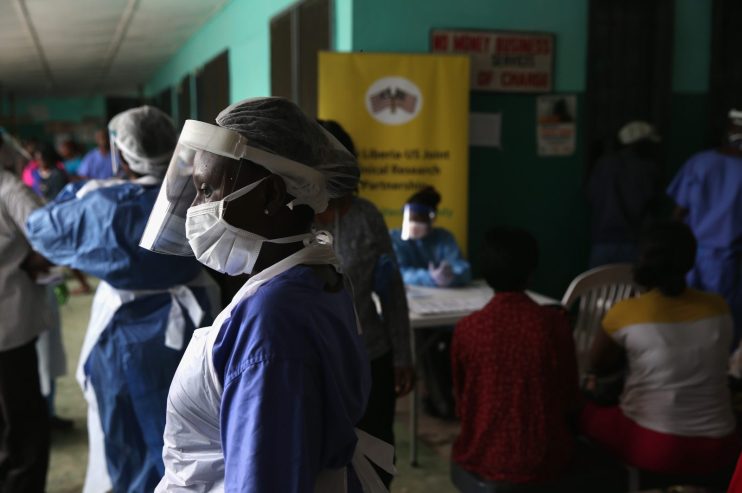Foreign aid isn’t charity, it’s an investment in our own prosperity

When he announced his decision to cut UK foreign aid spending from 0.7 per cent to 0.5 per cent of GDP, chancellor Rishi Sunak, argued that the sum was hard to justify to the British people during a pandemic.
In fact, it is not so hard.
Aid is not charity, and its benefits are neither vague nor intangible. International aid done well is an investment in our shared security and prosperity.
Covid-19, which does not stop at the border, has revealed again that nations are connected. To cut investment in the midst of a global crisis is entirely misconceived.
We need to stop seeing aid as a form of charitable giving. Rather, it is as important a part of the UK’s self-interest as domestic economic stimulus.
Compared to the sums already spent in response to Covid, the aid figure is small and the good that is done is considerable. UK aid has been essential, for example, to the success of the ACT-Accelerator — the partnership of countries, international organisations and private sector companies leading the global effort to end the Covid-19 pandemic by bringing fair access to vaccines, tests and treatments around the world.
That’s important for all of us, because the sooner we end the pandemic, the sooner we help struggling UK industries recover — including travel, trade, hospitality, and more. Setting aside the moral imperative of helping other countries, the economic benefits to the UK far outweigh the costs of contributing as part of the international community.
This broader beneficial impact of aid is not something unique to times of pandemic. The ACT-Accelerator has been built on an infrastructure of existing partnerships supported over many years by UK governments — partnerships such as Gavi, the global vaccine alliance. Thanks to the foresight of setting up this institution, we have an existing, reliable partner in purchasing and distributing Covid-19 vaccines to the most vulnerable populations throughout the world.
Gavi is a check on “vaccine nationalism”, whereby the available supply of vaccines is only directed to the richest countries able to afford them. And it is also a sound investment even when the world is not facing a pandemic — it provides a return to the global economy of £54 for every pound it costs.
Well-allocated aid also turns up unexpected benefits. The Coalition for Epidemic Preparedness Innovations (CEPI), to which the UK donated £210m in March, was initially intended for the developing world alone. It now has nine Covid-19 vaccine candidates and is already developing “wave 2” vaccines to address gaps in global supply in the latter half of 2021 that will benefit all countries, the UK included.
These decisions were right morally: where you live shouldn’t determine whether you live. But the decisions were also right strategically and financially. The IMF estimates that the pandemic is costing the world $375bn every month, and forecasts a $12 trillion cumulative loss over two years. A new study by the Eurasia Group found that neglecting to help lower-middle-income countries could put decades of development progress at risk. A decline of this magnitude would blow back on the UK through its economic exposure to emerging markets.
This analysis also found that the economic benefits of an equitable vaccine solution to the 10 aid donor countries included in the study would be at least $153bn in 2020–21. Over the next five years, this sum rises to a cumulative $466bn, more than 12 times the $38bn total estimated cost of the Act-Accelerator program.
There are many improvements that can be made to how aid is spent, but it is self-harming for a nation to cut it outright — especially Britain.
Next year, the UK chancellor will be chairing the finance ministers of the G7. This is a moment for Britain to bring forward ideas on how we put public and private financing at the service of the world economy and its health systems. Boris Johnson has rightly issued a challenge to other G7 leaders to join him in fixing the global health system that proved unready for Covid-19. This is how we will make ourselves resilient against the threat of any future pandemic.
Britain is well placed to provide innovation in financial thinking too, just as it has done in the past. Britain came up with an Innovative Financing Facility for Immunisation that leveraged financial markets to ensure that new vaccines could get out to developing countries as quickly as advanced economies. It led the way during a previous G7 presidency on providing relief for unsustainable debt. The UK has smartly reserved a portion of the aid budget for research into global public goods that can solve some of the world’s most intractable problems, which would otherwise not get funded.
This is the type of leadership we will need from the UK during its G7 presidency next year: new collective modes of investing to solve shared problems, not a retreat from commitments to the world’s poorest.
Money can always be spent better, more efficiently to greater effect. But to curtail aid spending, particularly in this moment of international crisis, would be to weaken not just the world’s poorest countries, but the UK too.
Main image credit: Getty